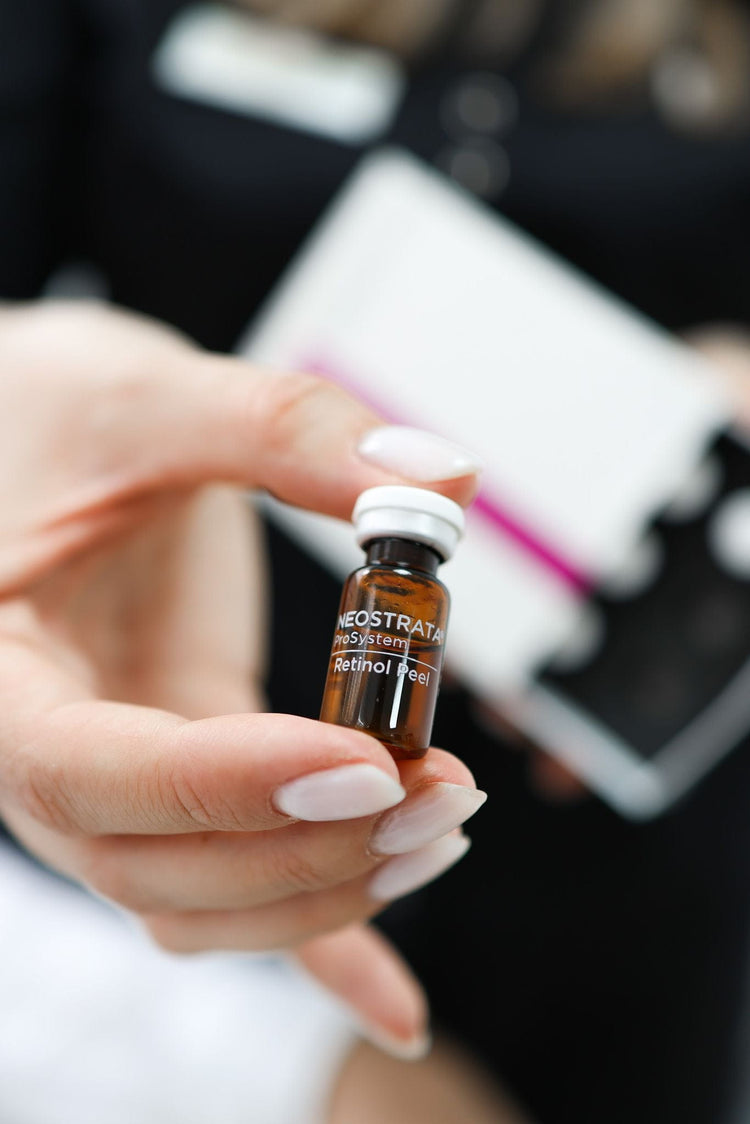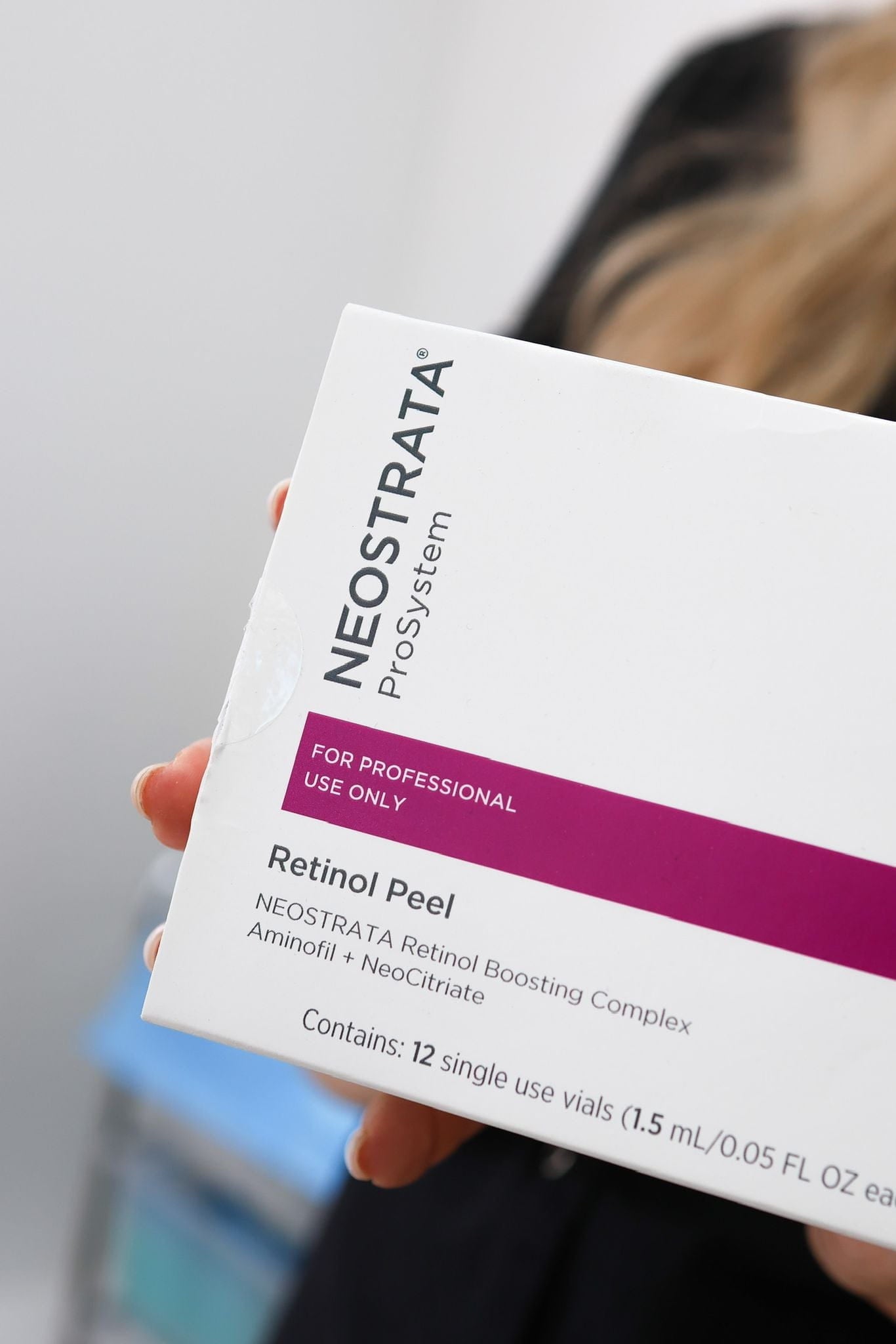Does Retinol Peel Work For Oily Skin In Kingston Upon Thames
Benefits of Retinol Peels for Oily Skin
Oily skin can often lead to clogged pores, breakouts, and a shiny complexion. Retinol peels offer a promising solution for those seeking clearer, smoother skin. By exfoliating dead skin cells and unclogging pores, retinol peels can help regulate sebum production and reduce the appearance of blemishes.
Reduced Oil Production
Retinol is a powerful ingredient known for its ability to regulate oil production. When used in a peel, it penetrates deep into the skin’s pores, dissolving excess sebum and preventing it from clogging follicles. This leads to a reduction in shine, smaller pore appearance, and fewer breakouts.
Retinol peels also stimulate collagen production, improving skin texture and firmness. As a result, oily skin can appear smoother and more refined over time.
Minimized Pore Appearance
Oily skin can often lead to clogged pores, breakouts, and a shiny complexion. Retinol peels offer a promising solution for those seeking clearer, smoother skin. By exfoliating dead skin cells and unclogging pores, retinol peels can help regulate sebum production and reduce the appearance of blemishes.
Retinol is a powerful ingredient known for its ability to regulate oil production. When used in a peel, it penetrates deep into the skin’s pores, dissolving excess sebum and preventing it from clogging follicles. This leads to a reduction in shine, smaller pore appearance, and fewer breakouts.
Retinol peels also stimulate collagen production, improving skin texture and firmness. As a result, oily skin can appear smoother and more refined over time.
Improved Skin Texture
Oily skin can often lead to clogged pores, breakouts, and a shiny complexion. Retinol peels offer a promising solution for those seeking clearer, smoother skin. By exfoliating dead skin cells and unclogging pores, retinol peels can help regulate sebum production and reduce the appearance of blemishes.
Retinol is a powerful ingredient known for its ability to regulate oil production. When used in a peel, it penetrates deep into the skin’s pores, dissolving excess sebum and preventing it from clogging follicles. This leads to a reduction in shine, smaller pore appearance, and fewer breakouts.
Retinol peels also stimulate collagen production, improving skin texture and firmness. As a result, oily skin can appear smoother and more refined over time.
Acne Treatment
Oily skin can often lead to clogged pores, breakouts, and a shiny complexion. Retinol peels offer a promising solution for those seeking clearer, smoother skin. By exfoliating dead skin cells and unclogging pores, retinol peels can help regulate sebum production and reduce the appearance of blemishes.
Retinol is a powerful ingredient known for its ability to regulate oil production. When used in a peel, it penetrates deep into the skin’s pores, dissolving excess sebum and preventing it from clogging follicles. This leads to a reduction in shine, smaller pore appearance, and fewer breakouts.
Retinol peels also stimulate collagen production, improving skin texture and firmness. As a result, oily skin can appear smoother and more refined over time.
Retinol Peel Process in Kingston Upon Thames
Does retinol peel work for oily skin in Kingston Upon Thames? Oily skin is often plagued by clogged pores, breakouts, and an unwanted shine. Retinol peels offer a potential solution for those seeking clearer, smoother skin.
Consultation and Patch Test
Does retinol peel work for oily skin in Kingston Upon Thames? Oily skin is often plagued by clogged pores, breakouts, and an unwanted shine. Retinol peels offer a potential solution for those seeking clearer, smoother skin.
Retinol is a powerful ingredient known for its ability to regulate oil production. When used in a peel, it penetrates deep into the skin’s pores, dissolving excess sebum and preventing it from clogging follicles. This leads to a reduction in shine, smaller pore appearance, and fewer breakouts.
- Consultation: Before undergoing any peel treatment, it’s essential to consult with a qualified esthetician or dermatologist in Kingston Upon Thames.
- Patch Test: A patch test will be conducted to assess your skin’s reaction to retinol. This helps identify any potential sensitivities or allergies before the full peel.
- The Peel Process: The actual peel involves applying a solution containing retinol to the skin. The esthetician will monitor the reaction and adjust the treatment time as needed.
- Post-Treatment Care: Your esthetician will provide specific instructions for post-treatment care, which may include using sunscreen, avoiding certain products, and moisturizing regularly.
Peel Application
Does retinol peel work for oily skin in Kingston Upon Thames? Oily skin is often plagued by clogged pores, breakouts, and an unwanted shine. Retinol peels offer a potential solution for those seeking clearer, smoother skin.
Retinol is a powerful ingredient known for its ability to regulate oil production. When used in a peel, it penetrates deep into the skin’s pores, dissolving excess sebum and preventing it from clogging follicles. This leads to a reduction in shine, smaller pore appearance, and fewer breakouts.
- Consultation: Before undergoing any peel treatment, it’s essential to consult with a qualified esthetician or dermatologist in Kingston Upon Thames.
- Patch Test: A patch test will be conducted to assess your skin’s reaction to retinol. This helps identify any potential sensitivities or allergies before the full peel.
- The Peel Process: The actual peel involves applying a solution containing retinol to the skin. The esthetician will monitor the reaction and adjust the treatment time as needed.
- Post-Treatment Care: Your esthetician will provide specific instructions for post-treatment care, which may include using sunscreen, avoiding certain products, and moisturizing regularly.
Post-Treatment Care Instructions
Does retinol peel work for oily skin in Kingston Upon Thames? Oily skin is often plagued by clogged pores, breakouts, and an unwanted shine. Retinol peels offer a potential solution for those seeking clearer, smoother skin.

Retinol is a powerful ingredient known for its ability to regulate oil production. When used in a peel, it penetrates deep into the skin’s pores, dissolving excess sebum and preventing it from clogging follicles. This leads to a reduction in shine, smaller pore appearance, and fewer breakouts.
- Consultation: Before undergoing any peel treatment, it’s essential to consult with a qualified esthetician or dermatologist in Kingston Upon Thames.
- Patch Test: A patch test will be conducted to assess your skin’s reaction to retinol. This helps identify any potential sensitivities or allergies before the full peel.
- The Peel Process: The actual peel involves applying a solution containing retinol to the skin. The esthetician will monitor the reaction and adjust the treatment time as needed.
- Post-Treatment Care: Your esthetician will provide specific instructions for post-treatment care, which may include using sunscreen, avoiding certain products, and moisturizing regularly.
Finding a Reputable Clinic in Kingston Upon Thames
Finding a reputable clinic in Kingston Upon Thames is crucial when considering aesthetic treatments like retinol peels.
Qualifications of the Esthetician

When seeking a reputable clinic, look for licensed estheticians or dermatologists with experience in performing retinol peels. Check online reviews and testimonials from previous patients to gauge the clinic’s reputation and patient satisfaction.
Ensure the clinic adheres to strict hygiene standards and uses high-quality products.
A qualified esthetician will have extensive training and knowledge about skin types, conditions, and appropriate treatment protocols. They will be able to assess your individual needs and recommend a personalized retinol peel regimen.
Client Reviews and Testimonials
Finding a reputable clinic in Kingston Upon Thames is crucial when considering aesthetic treatments like retinol peels.
When seeking a reputable clinic, look for licensed estheticians or dermatologists with experience in performing retinol peels. Check online reviews and testimonials from previous patients to gauge the clinic’s reputation and patient satisfaction. Ensure the clinic adheres to strict hygiene standards and uses high-quality products.
A qualified esthetician will have extensive training and knowledge about skin types, conditions, and appropriate treatment protocols. They will be able to assess your individual needs and recommend a personalized retinol peel regimen.
Clinic Hygiene and Safety Standards
Finding a reputable clinic in Kingston Upon Thames is crucial when considering aesthetic treatments like retinol peels. When seeking a reputable clinic, look for licensed estheticians or dermatologists with experience in performing retinol peels. Check online reviews and testimonials from previous patients to gauge the clinic’s reputation and patient satisfaction.
Ensure the clinic adheres to strict hygiene standards. This includes using sterile instruments, disinfecting surfaces regularly, and employing proper disposal methods for used materials. Reputable clinics prioritize patient safety and well-being. High-quality products are another important factor. Look for clinics that use professional-grade retinol peels from reputable brands known for their efficacy and safety. A qualified esthetician will have extensive training and knowledge about skin types, conditions, and appropriate treatment protocols. They will be able to assess your individual needs and recommend a personalized retinol peel regimen.
Potential Side Effects and Risks
Like any medical or cosmetic procedure, retinol peels can have potential side effects. These may include temporary redness, irritation, dryness, peeling, or sensitivity to sunlight. It’s essential to follow post-treatment care instructions carefully to minimize these effects and promote healing.
Skin Irritation and Redness
Like any medical or cosmetic procedure, retinol peels can have potential side effects. These may include temporary redness, irritation, dryness, peeling, or sensitivity to sunlight. It’s essential to follow post-treatment care instructions carefully to minimize these effects and promote healing.
Skin Irritation and Redness: Retinol is a potent ingredient that can cause temporary skin irritation and redness, particularly after the peel application. This is often mild and subsides within a few days.
Increased Sensitivity to Sunlight
Like any medical or cosmetic procedure, retinol peels can have potential side effects. These may include temporary redness, irritation, dryness, peeling, or sensitivity to sunlight. It’s essential to follow post-treatment care instructions carefully to minimize these effects and promote healing.
Skin Irritation and Redness: Retinol is a potent ingredient that can cause temporary skin irritation and redness, particularly after the peel application. This is often mild and subsides within a few days.
Dryness and Peeling: Retinol peels exfoliate the skin, which can lead to dryness and peeling in the days following the treatment. Proper moisturizing and sun protection are crucial during this period.
Sun Sensitivity: Retinol makes the skin more sensitive to sunlight, so it’s essential to wear sunscreen daily with an SPF of 30 or higher for at least a week after the peel, and ideally longer.
Increased Sensitivity: Your skin may be more sensitive to other skincare products and environmental factors during the healing process. Avoid using harsh scrubs or exfoliants and limit exposure to irritants like smoke or pollutants.
Chemical Burns (rare)
Like any medical or cosmetic procedure, retinol peels can have potential side effects. These may include temporary redness, irritation, dryness, peeling, or sensitivity to sunlight. It’s essential to follow post-treatment care instructions carefully to minimize these effects and promote healing.
Skin Irritation and Redness: Retinol is a potent ingredient that can cause temporary skin irritation and redness, particularly after the peel application. This is often mild and subsides within a few days.
Dryness and Peeling: Retinol peels exfoliate the skin, which can lead to dryness and peeling in the days following the treatment. Proper moisturizing and sun protection are crucial during this period.
Sun Sensitivity: Retinol makes the skin more sensitive to sunlight, so it’s essential to wear sunscreen daily with an SPF of 30 or higher for at least a week after the peel, and ideally longer.
Increased Sensitivity: Your skin may be more sensitive to other skincare products and environmental factors during the healing process. Avoid using harsh scrubs or exfoliants and limit exposure to irritants like smoke or pollutants.
In rare cases, retinol peels can cause chemical burns. This is usually due to improper application, overuse, or a reaction to a specific ingredient in the peel solution. Chemical burns can present as pain, redness, blistering, and even scarring. It’s crucial to consult a qualified esthetician or dermatologist for any unusual reactions or concerns.
Alternatives to Retinol Peels for Oily Skin
While retinol peels offer numerous benefits for oily skin, it’s not the only solution available. Alternatives like chemical exfoliants containing glycolic acid or salicylic acid can effectively remove dead skin cells and regulate oil production.
Topical retinoids, which are milder than prescription-strength retinol, can be gradually incorporated into your skincare routine to improve skin texture and reduce breakouts. Additionally, clay masks can help absorb excess oil and impurities, leaving the skin feeling refreshed and mattified.
Remember, choosing the right treatment depends on individual skin needs and sensitivities. Consulting with a qualified esthetician in Kingston Upon Thames can help determine the most suitable option for achieving clearer, healthier-looking oily skin.
Salicylic Acid Treatments
While retinol peels offer numerous benefits for oily skin, it’s not the only solution available. Alternatives like chemical exfoliants containing glycolic acid or salicylic acid can effectively remove dead skin cells and regulate oil production.
- Glycolic Acid: This alpha-hydroxy acid (AHA) gently dissolves dead skin cells, unclogs pores, and brightens the complexion. It’s often found in toners, cleansers, and serums.
- Salicylic Acid: A beta-hydroxy acid (BHA), salicylic acid penetrates deeper into pores to dissolve excess oil, dirt, and bacteria. It’s commonly used in acne treatments and spot treatments.
Topical retinoids, which are milder than prescription-strength retinol, can be gradually incorporated into your skincare routine to improve skin texture and reduce breakouts. Additionally, clay masks can help absorb excess oil and impurities, leaving the skin feeling refreshed and mattified.
Remember, choosing the right treatment depends on individual skin needs and sensitivities. Consulting with a qualified esthetician in Kingston Upon Thames can help determine the most suitable option for achieving clearer, healthier-looking oily skin.
Glycolic Acid Peels
While retinol peels offer promising results for oily skin, they might not be suitable for everyone. If you’re looking for alternatives, consider glycolic acid peels.
Glycolic acid is a type of alpha-hydroxy acid (AHA) that effectively exfoliates the skin by dissolving dead skin cells and unclogging pores. It helps regulate oil production, minimize the appearance of pores, and improve skin texture.
Similar to retinol peels, glycolic acid peels can be customized based on your skin’s sensitivity and desired outcome.
Other Chemical Exfoliants
Alternatives to retinol peels for oily skin include various chemical exfoliants that target oil production and unclog pores. Glycolic acid peels are a popular option, offering gentle yet effective exfoliation.
Another excellent alternative is salicylic acid, which penetrates deeper into pores to dissolve excess oil and sebum, making it particularly helpful for acne-prone skin.
For those seeking a milder approach, consider incorporating topical retinoids into your skincare routine. These are less potent than prescription retinol but still offer benefits for regulating oil production and improving skin texture.
- Why Won’t My Sinus Inflammation Go Away? - January 21, 2026
- Why More People Are Turning To CBD Gummies For Stress Relief - January 19, 2026
- Why CBD Gummies Are A Popular Option For Natural Pain Management - January 18, 2026
